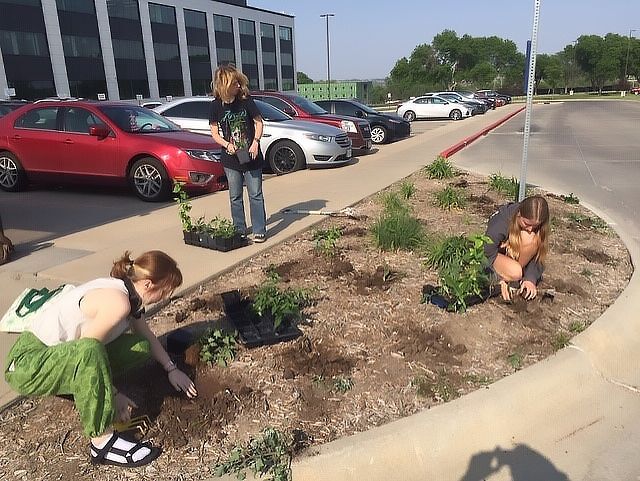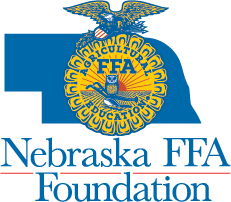Welcome to the Nebraska FFA Foundation website!
The Nebraska FFA Foundation exists to enhance quality education/FFA programs in order to achieve excellence in leadership development, curriculum innovation and scholastic advancement of students. With your help we can make a difference. Our full website furthers our mission by providing ways for you to learn more and get involved. Thanks for visiting. For more information, contact us or visit our full website.
What’s All the Buzz - The Career Academy
Laura Albro on 05/31/2024

The Career Academy FFA program in Lincoln is dedicated to preserving pollinators in Nebraska. They had a goal of educating community members on the pollination process and the different kinds of pollinators (bats, bees, and butterflies) and plants they are attracted to by establishing small bloom boxes, or pollinator gardens, around Lincoln.
With the help of the Nebraska FFA Foundation Local Chapter Grant Program, they were able to achieve this goal. The chapter used the grant funds to purchase demonstration props for presentations, promotional t-shirts, wood for the garden edging, and materials to grow plants for the gardens. The 21 TCA FFA members helped with every step of the process which included creating an educational and engaging presentation, building the bloom boxes, growing the native pollinator plants, and installing the gardens. A total of 11 gardens were created; 6 located at Lincoln Public Schools, and 5 at homes of TCA FFA members.
The gardens are contained in a 10’ x 10’ wooden frame. The plants are scattered throughout and there is minimal mulch because some native bees live in the ground. Some examples of the plants are gray coneflower, Indiangrass, common milkweed, white wild indigo, and purple coneflower. The Career Academy FFA advisor, Tom Wheeldon, says they look like young gardens that will fill in over time with blooming perennial plants and flowers. The plants are cared for by students in afterschool programs at the schools they are planted at.
The FFA Program has been able to combine classroom learning with these pollinator gardens as well. Students have learned about propagating and raising plants that can be added to the gardens or replace older plants as the hope is the pollinator gardens will continue to grow and be kept up. Many students have also learned about pollinators in some of the classes offered through The Career Academy. Introduction to Agriculture, Introduction to Horticulture, Greenhouse Management, and Crop and Food Science classes have all had pollinator education incorporated into the curriculum. Now, these students are equipped to educate their community on how beneficial and important pollinators are in agriculture and can continue to create learning opportunities.
